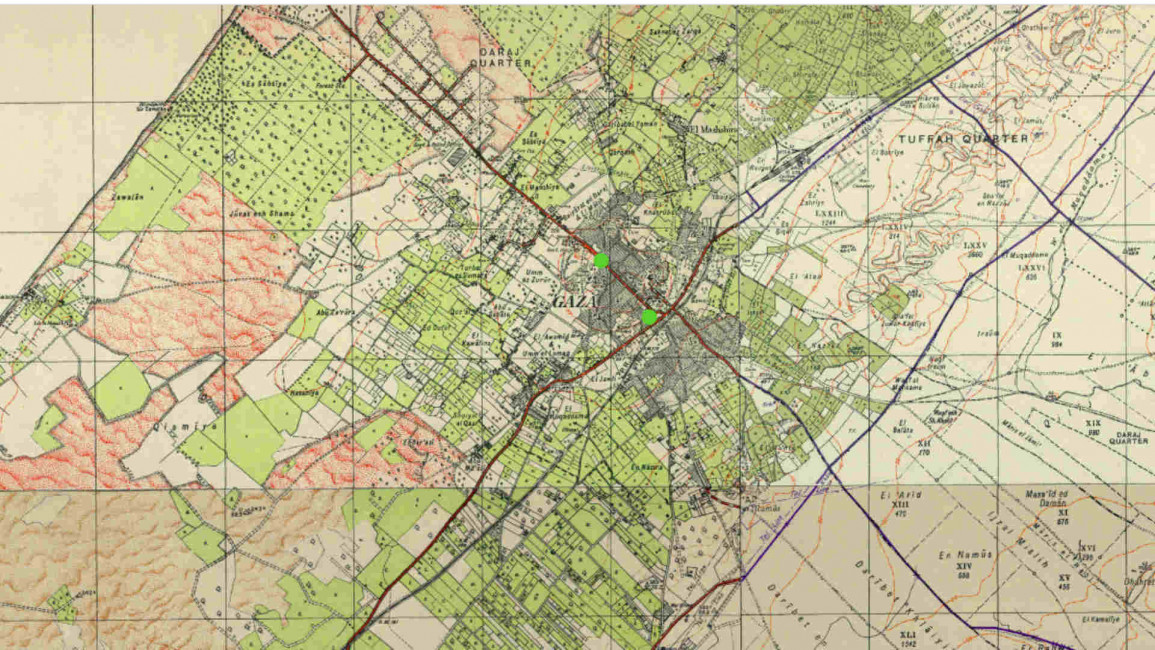
Palestine Open Maps: charting Israel's colonisation
Palestine Open Maps: charting Israel's colonisation
A new web interactive tool allows users to chart the Israeli erasure of Palestinian villages since the 1880s.
2 min read
Screenshot of the Palestine Open Maps alpha project [Visualizing Palestine]
On the 70th anniversary of Nakba, "the catastrophe", the data-driven Visualizing Palestine rights group launched the Palestine Open Maps project that allows users to chart the ongoing colonisation of Palestinian villages since the 1880s.
The importance of geography and history, the group said in an email release, remains as important as ever today.
This year, to mark the US opening its new embassy in Jerusalem on Israel's independence day on 14 May, Gazans staged mass protests. Israel responded to unarmed demonstrators with live bullets, killing over 100 and injuring more than 2,000.
The idea for the project came about after Visualizing Palestine discovered scanned maps from the British Mandate period that lasted from 1920 to 1948. The group was able to translate these maps into an interactive tool that contains thousands of orginal Arabic village names and land ownership boundaries.
The importance of geography and history, the group said in an email release, remains as important as ever today.
This year, to mark the US opening its new embassy in Jerusalem on Israel's independence day on 14 May, Gazans staged mass protests. Israel responded to unarmed demonstrators with live bullets, killing over 100 and injuring more than 2,000.
The idea for the project came about after Visualizing Palestine discovered scanned maps from the British Mandate period that lasted from 1920 to 1948. The group was able to translate these maps into an interactive tool that contains thousands of orginal Arabic village names and land ownership boundaries.
Users can click on individual villages and see how they have transformed over time — whether they exist at all and if they are still Palestinian areas.
The extent of Israel's erasure of Palestinian localities was widespread enough that Israeli military leader and politician Moshe Dayan observed, back in 1969, that "There is not one single place built in this country that did not have a former Arab population".
The launch of Palestine Open Maps follows months of downloading maps and georeferencing them. Visualizing Palestine says they are looking to expand the functionalities of the platform and build immersive storytelling that the rights group has come to be known for.
Twitter Post
|
The launch of Palestine Open Maps follows months of downloading maps and georeferencing them. Visualizing Palestine says they are looking to expand the functionalities of the platform and build immersive storytelling that the rights group has come to be known for.
Because the Open Maps project is in its alpha stage, Visualizing Palestine says it is is looking for community feedback about the tool.
Follow us on Twitter: @The_NewArab




